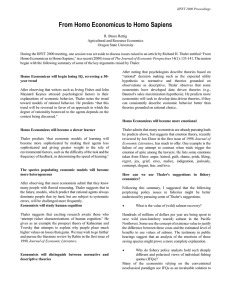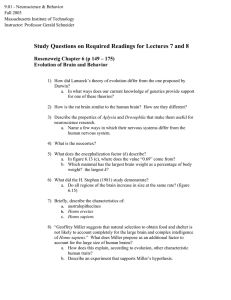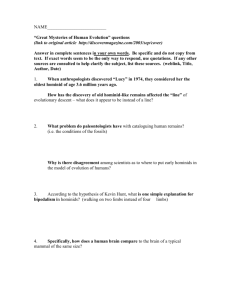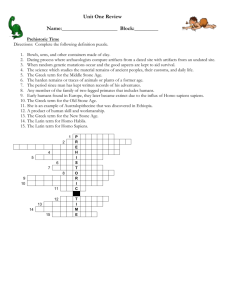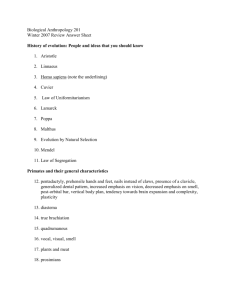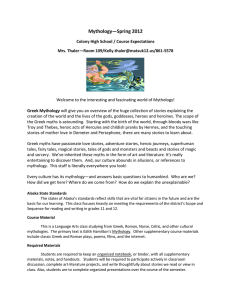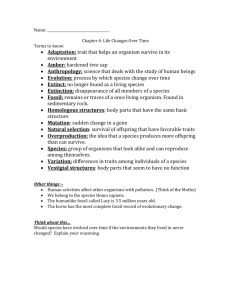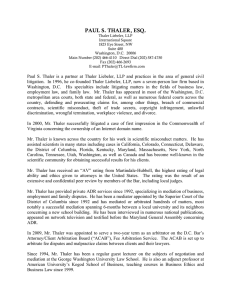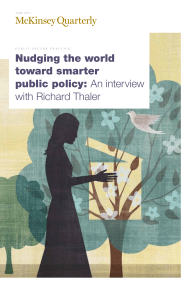Comments on Richard H. Thaler, From Homo Economicus to Homo
advertisement
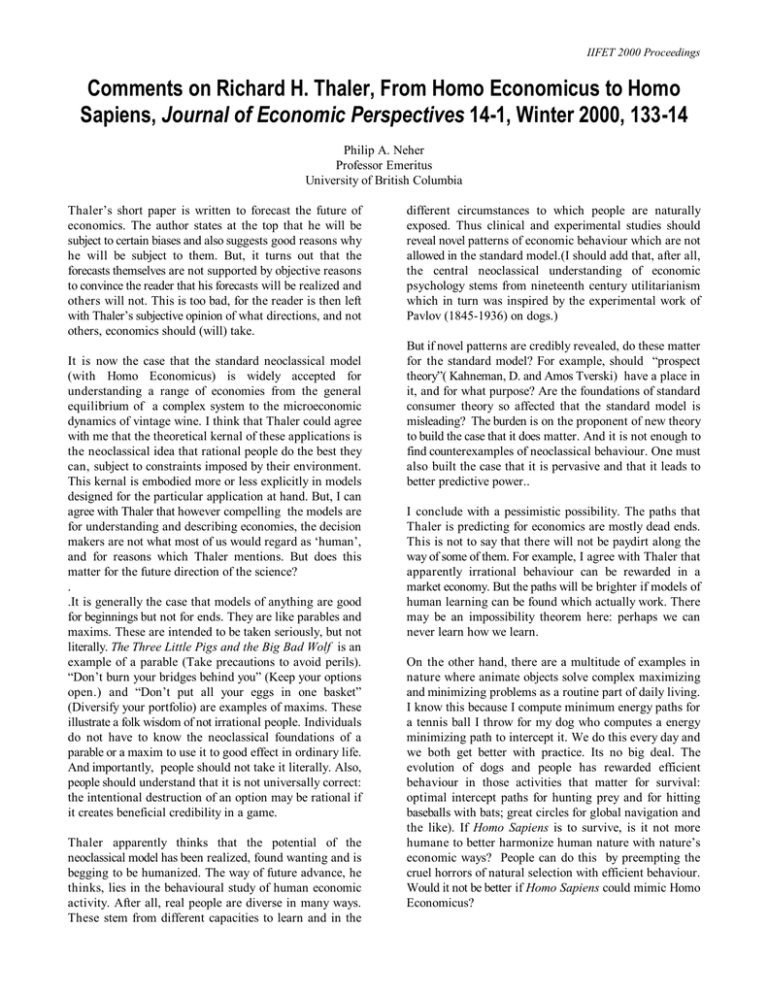
IIFET 2000 Proceedings Comments on Richard H. Thaler, From Homo Economicus to Homo Sapiens, Journal of Economic Perspectives 14-1, Winter 2000, 133-14 Philip A. Neher Professor Emeritus University of British Columbia Thaler’s short paper is written to forecast the future of economics. The author states at the top that he will be subject to certain biases and also suggests good reasons why he will be subject to them. But, it turns out that the forecasts themselves are not supported by objective reasons to convince the reader that his forecasts will be realized and others will not. This is too bad, for the reader is then left with Thaler’s subjective opinion of what directions, and not others, economics should (will) take. It is now the case that the standard neoclassical model (with Homo Economicus) is widely accepted for understanding a range of economies from the general equilibrium of a complex system to the microeconomic dynamics of vintage wine. I think that Thaler could agree with me that the theoretical kernal of these applications is the neoclassical idea that rational people do the best they can, subject to constraints imposed by their environment. This kernal is embodied more or less explicitly in models designed for the particular application at hand. But, I can agree with Thaler that however compelling the models are for understanding and describing economies, the decision makers are not what most of us would regard as ‘human’, and for reasons which Thaler mentions. But does this matter for the future direction of the science? . .It is generally the case that models of anything are good for beginnings but not for ends. They are like parables and maxims. These are intended to be taken seriously, but not literally. The Three Little Pigs and the Big Bad Wolf is an example of a parable (Take precautions to avoid perils). “Don’t burn your bridges behind you” (Keep your options open.) and “Don’t put all your eggs in one basket” (Diversify your portfolio) are examples of maxims. These illustrate a folk wisdom of not irrational people. Individuals do not have to know the neoclassical foundations of a parable or a maxim to use it to good effect in ordinary life. And importantly, people should not take it literally. Also, people should understand that it is not universally correct: the intentional destruction of an option may be rational if it creates beneficial credibility in a game. Thaler apparently thinks that the potential of the neoclassical model has been realized, found wanting and is begging to be humanized. The way of future advance, he thinks, lies in the behavioural study of human economic activity. After all, real people are diverse in many ways. These stem from different capacities to learn and in the different circumstances to which people are naturally exposed. Thus clinical and experimental studies should reveal novel patterns of economic behaviour which are not allowed in the standard model.(I should add that, after all, the central neoclassical understanding of economic psychology stems from nineteenth century utilitarianism which in turn was inspired by the experimental work of Pavlov (1845-1936) on dogs.) But if novel patterns are credibly revealed, do these matter for the standard model? For example, should “prospect theory”( Kahneman, D. and Amos Tverski) have a place in it, and for what purpose? Are the foundations of standard consumer theory so affected that the standard model is misleading? The burden is on the proponent of new theory to build the case that it does matter. And it is not enough to find counterexamples of neoclassical behaviour. One must also built the case that it is pervasive and that it leads to better predictive power.. I conclude with a pessimistic possibility. The paths that Thaler is predicting for economics are mostly dead ends. This is not to say that there will not be paydirt along the way of some of them. For example, I agree with Thaler that apparently irrational behaviour can be rewarded in a market economy. But the paths will be brighter if models of human learning can be found which actually work. There may be an impossibility theorem here: perhaps we can never learn how we learn. On the other hand, there are a multitude of examples in nature where animate objects solve complex maximizing and minimizing problems as a routine part of daily living. I know this because I compute minimum energy paths for a tennis ball I throw for my dog who computes a energy minimizing path to intercept it. We do this every day and we both get better with practice. Its no big deal. The evolution of dogs and people has rewarded efficient behaviour in those activities that matter for survival: optimal intercept paths for hunting prey and for hitting baseballs with bats; great circles for global navigation and the like). If Homo Sapiens is to survive, is it not more humane to better harmonize human nature with nature’s economic ways? People can do this by preempting the cruel horrors of natural selection with efficient behaviour. Would it not be better if Homo Sapiens could mimic Homo Economicus?
